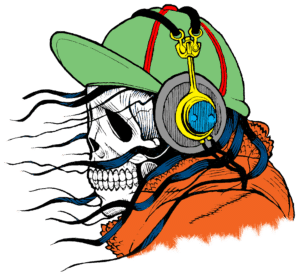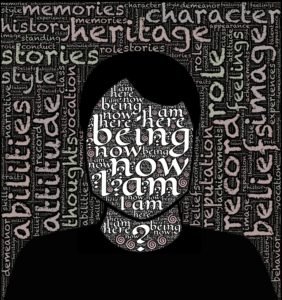
Growing Into Myself
At the ripe old age of 10, my dad and I ran into one of his gym friends when I was getting picked up from a late night swim practice. I don’t remember much from that interaction, but what I do remember sort of changed my life.
The friend was extraordinarily tall, the kind of tall that you think about when comparing an average Joe to Shaquille O’Neill. But that wasn’t the important detail I recall. When we reached my dad’s pewter SUV, he told me, “Yeah, he’s a judge, he hits the gavel like you see on TV.” That was it.
Ever since that day, I envisioned a career in law. I love the black robes that envelop the judge like a midnight hug. I love the way the courtroom presents itself like a theater production, the lawyers vying for the titular role on either side of the judge’s bench. And most of all, I love the way that jurors are yanked into this theater of truth to help breathe justice into the nation.
My fascination with entering a career in law was coupled with my budding fascination with words. Whether I was writing or reading them, I was enamored with crafting castles out of letters and surrounding myself with fictitious characters who brought comfort into my life.
I believed that what I loved most brought worth into this world. Being able to apply these skills to the legal system would do immeasurable good. I came into UC Berkeley wide-eyed and bushy-tailed, waiting to wade into the waters of political science and whatever else was thrown my way.
In the first weeks of my college experience, however, words were used to tear down everything I’d previously built up.
“You can go out on a Tuesday night, you study humanities.”
“My sister graduated magna cum laude, but she majored in English, so does it really count?”
Oh, and my personal favorite: “Why are you wasting a Berkeley degree on a joke major?”
I often caught myself lying about my major, fabricating the fact I was attempting to pursue a career in business, while in reality, I was deeply struggling to figure out how to somehow skirt by in the Haas prerequisite classes surrounding mathematics.
After each white lie escaped my mouth, shame boiled through my body and up into my brain. I felt small stabs of betrayal that widened into a gaping wound that tore away a large piece of who I was.
Why should I be ashamed of what brought passion to my life?
The answer is impostor syndrome, a two-word phrase encapsulating the human experience.
I like to compare many things in life to a pot of gold at the end of a rainbow: unattainable. This is not to out myself as the world’s greatest cynic, but, rather, to cast a shadow of realism on the fickle nature of satisfaction. Impostor syndrome feeds on the ever-changing wants of humanity. Now, my want centered around reaching the elusive superiority felt by those in the STEM field.
Science, technology, engineering and mathematics. Four words that might as well be synonymous with respect. These careers often rake in money and sometimes even a retirement at the remarkably young age of 35.
At Berkeley, STEM majors are lauded for landing coveted internships with Microsoft and Meta, while humanities students receive mocking stares after pulling out a history textbook in the Kresge Library. College often looks down on those who choose to pursue a B.A., which, in my opinion, is B.S.
After I allowed my shame-fueled impostor syndrome to swallow me whole, I began to piece back together parts of myself that allowed me to love what I was interested in learning. At a time of tumultuous upheaval in American society, I started staring at the television screen thinking about how it was political science majors turned lawyers who were fighting at the front lines.
I started watching English majors turned journalists in the press preventing democracy from dying in darkness. And finally, I started seeing myself in these potential positions creating a better future for those who have not yet grown to understand our world.
College can be awfully suffocating. For these four integral years, we are pigeonholed into majors that supposedly define our entire personality. It is hardly surprising that we accept these labels as personal identifiers, almost like a name and birth date.
This makes the inevitable divide between the arts and sciences personal. We act like our major is a horse in the Kentucky Derby, violently scampering towards a finish line that ends up rewarding the same thick paper diploma to each competitor.
But a couple of months out of college, the piece of paper with the two letters that brand our undergraduate identity presumably dusts up in a storage closet while you grab a caramel latte from the corner cafe on your way to work. Work represents our commonality, while college highlights our collective divide.
For me, this vision is a long way away.
So for now, I implore you to pull that vision closer. And in the process, push away whatever defeating attitudes that STEM from impostor-syndrome-filled insecurities that lie in your way.
Emma Solomon is a student at University of California Berkeley. This article was originally published in The Daily Californian and is posted here with permission from Emma Solomon.
Like most of the pictures on TeensParentsTeachers, the picture posted with this article is courtesy of a free download from Pixabay.com.



